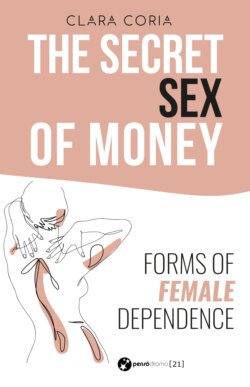Читать книгу The Secret Sex of Money - Clara Coria - Страница 11
На сайте Литреса книга снята с продажи.
Some important clarifications
ОглавлениеWhen I embarked on my research into this question I restricted my field of action, meaning that I had to leave out an infinite number of others.
Curiously, when I set out my reflections on money, people almost invariably asked me about the aspects that I had omitted.
Anyone with common sense, unless they are omnipotent, should accept that “everything” is a lot and generally exceeds what is “possible”.
In fact, I did not omit certain aspects that I deemed to be irrelevant.
I hasten to add that the reflections raised herein are not intended to be universal. They have their point of departure in the middle class,9 because the focus of this book is centred on financial empowerment within a patriarchal society. And with this goal in mind, the middle class is particularly suited to this end for two main reasons:
First, because economic independence is a necessary condition for autonomy. In this respect, the poorer and wealthier classes include variables that make this research extremely difficult or impossible.
It is a great deal more difficult to research autonomy in the poorer classes, whose economic hardships allow them no economic independence. Besides their economic privations, if we start from the premise that economic independence is a necessary condition for autonomy, we would have to address the former instead of the latter.
As regards the wealthy class, the surplus of economic resources may conceal false autonomies, which is difficult (though not impossible) to debate given the possibilities that these resources give them.
I should add that patriarchal ideology is much more deeply ingrained and more manifest in both the poor and rich classes, making these two classes by far the more challenging to research.10
Moreover, to my mind, the exposition of the hidden patriarchal mechanism in the supposed parity between the sexes in the middle class – not least after the woman’s entry into the workforce became especially significant – is immensely attractive and helpful.
The purpose of this book is to play a part in breaking the taboo surrounding this omnipotent, ancient, contemporary, and yet omitted issue, and to foster further inquiry that may respond to the countless questions to which it gives rise.
Lastly, I wish to point out that reflecting on this theme is not innocuous. It is as if we had hastily brushed the dust under the rug because we didn’t know what to do with it. We must inevitably face what we have hidden.
We might even venture, as some movies warn us, that this is not a subject for the faint-hearted.
To discuss money is to enter many realms: couples, children, the family of origin (parents and siblings), friends, lovers, creeds, ethical and aesthetic principles, plans, assessing the past…
It is a deeply moving and exceptionally enlightening subject. We could sum it up by saying that it is one that brings to the surface and holds up to the light all the tacit and implicit agreements that invariably underlie our relationships.
This is why I say that money is a matchmaker.
This book is for sharing, especially with people of a questioning nature, who are encouraged by the enticing and unsettling quest for that which has been omitted, who dare to query stereotypes and believe it is possible to build new alternatives over old problems.
